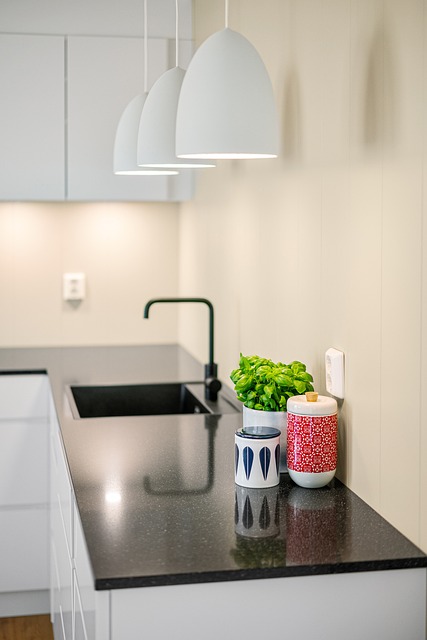2023 holds significant implications for foreign investors interested in Singapore's Executive Condominium (EC) scheme, which is managed by the Housing & Development Board (HDB). The EC market is expected to evolve with the integration of smart home and sustainable living features, catering to eco-conscious buyers. Foreigners looking to invest in ECs must pay close attention to demographic shifts within Singapore, as these can influence housing demand and prices. Investors should also stay informed on policy changes that could affect their eligibility and the overall investment appeal of EC units. Given the unique rules around tenure and resale for ECs, especially in the context of second-hand units, it's crucial for foreign buyers to seek expert advice and understand the application processes specific to them. Keeping an eye on both the broader economic context and local property market trends will be essential for making well-informed investment decisions within the EC Hdb framework.
singapore executive condos, foreigner eligibility, hdb ec guidelines, investment opportunities, property market trends,SingPass role, EC application process, hybrid housing options, financial requirements for ECs, resale market insights.
In Singapore, the Executive Condominium Housing (EC) offers a unique blend of private property perks and public housing benefits. This article demystifies the eligibility criteria for foreigners interested in acquiring an EC, outlining the steps to purchase, financial obligations, and resale market nuances. Whether you’re exploring the Singapore property landscape for the first time or considering a strategic investment, this guide provides essential information on the EC application process, the pivotal role of SingPass, and insights into future market trends. Understanding these aspects is crucial for foreigners looking to navigate Singapore’s dynamic real estate scene and capitalize on the opportunities that Executive Condominium HDBs present.
- Understanding Executive Condominiums (ECs): A Hybrid Housing Option in Singapore
- Eligibility Criteria for Foreigners Buying an Executive Condo HDB
- The Application Process for Foreigners Interested in EC Ownership
- Key Differences Between Executive Condos and Public Housing in Singapore
- Assessing the Financial Requirements for Foreigners Investing in ECs
- The Role of SingPass and Its Importance in the EC Buying Process for Foreigners
- Navigating the Resale Market: Second-Hand Executive Condo HDB Options for Foreigners
- Future Trends and Considerations for Foreigners Investing in Singapore's EC Market
Understanding Executive Condominiums (ECs): A Hybrid Housing Option in Singapore

In Singapore, Executive Condominiums (ECs) represent a unique segment within the public and private housing landscape, offering a blend that caters to diverse needs. These hybrid homes are designed for upgrading families, providing the luxury of a condo with the affordability of a Housing & Development Board (HDB) flat. Executive Condominiums combine the best aspects of both public and private housing by featuring facilities such as swimming pools, gyms, and playgrounds, while also offering the benefits of HDB’s public housing schemes, including subsidies for eligible applicants. This makes ECs an attractive option for those seeking a space that balances comfort with cost-effectiveness, especially for middle-income families who aspire to elevate their living standards without the full financial commitment required for private condominiums.
Prospective residents interested in Executive Condominium HDB options should understand the eligibility criteria and application process, which differ from those for traditional HDB flats or private condos. Eligibility is determined by factors such as income ceilings, existing housing type, and whether applicants have previously owned a flat. Foreigners, particularly singles, are generally not eligible to purchase ECs directly unless they meet specific criteria set forth by the Singaporean government, which may include being a single parent or a long-term resident with particular qualifications. It is crucial for potential buyers to thoroughly research and comprehend these conditions to ensure they qualify for this unique housing option.
Eligibility Criteria for Foreigners Buying an Executive Condo HDB

Foreigners interested in purchasing an Executive Condominium (EC) in Singapore must navigate specific eligibility criteria set by the Housing & Development Board (HDB). Unlike local citizens, Singapore Permanent Residents (PRs) are eligible to apply for an EC on a 25-year leasehold basis. However, they must fulfill certain conditions: the buyer and any co- buyers must be PRs in Singapore, with at least one of the applicants being the sole or joint first charge mortgage holder. Foreigners are not permitted to purchase new EC units directly from HDB. Instead, they can acquire resale EC units only after obtaining approval from HDB on a case-by-case basis. This approval is subject to the foreign buyer satisfying specific criteria, including but not limited to, being a PR for at least five years and having a history of residing in Singapore for the past three years preceding the application. Additionally, they must dispose of their existing HDB flat before completing the purchase of the EC unit, ensuring they do not own any other subsidized HDB flat or private residential property locally. Understanding these restrictions is crucial for foreigners considering an investment in Executive Condominium HDB properties to avoid any potential roadblocks in the acquisition process.
The Application Process for Foreigners Interested in EC Ownership

For foreigners intrigued by the prospect of owning an Executive Condominium (EC) in Singapore, understanding the application process is crucial. The Housing & Development Board (HDB) administers EC schemes, allowing eligible Singaporeans orSingaporean permanent residents to purchase such units with a longer five-year minimum occupation period compared to private condominiums. Foreigners interested in applying for an EC must first ensure they meet the eligibility criteria, which includes being a married couple comprising at least one Singaporean citizen, and the other being a foreigner who has obtained a work pass or relevant employment pass for at least six months preceding the application date.
The application process begins with selecting an EC unit from developers’ sales channels. Foreigners must then submit an Application for Flat Purchase form to the HDB, along with necessary documents such as their work or employment passes, and those of their Singaporean spouse. The foreign applicant also needs to enter into a Deed of Declaration stating their intention to sell the EC back to the HDB at the end of their lease if they are no longer eligible for ownership due to changes in their marital status or employment situation. Upon meeting all eligibility criteria and obtaining approval from both HDB and the Singaporean spouse’s employer, the foreigner can proceed with the purchase. It is imperative to liaise closely with the HDB and the developer throughout this process to ensure a smooth transaction. The Executive Condominium HDB guidelines are designed to facilitate foreigners’ understanding of the ownership process, ensuring they are well-informed and prepared for the responsibilities that come with EC ownership.
Key Differences Between Executive Condos and Public Housing in Singapore

In Singapore, understanding the key differences between Executive Condos (ECs) and Public Housing (HDB) is crucial for anyone considering residential property within the country. Executive Condominiums are a hybrid housing type designed to cater to the needs of both singles and families at different life stages. They offer larger living spaces compared to traditional HDB flats, with amenities such as private facilities, which include lap pools, gyms, and function rooms. Unlike HDB flats, ECs are built by private developers and undergo a unique 5-year Minimum Occupation Period (MOP) where they function like a private condominium before transitioning into regular resale flat market conditions.
During the MOP, ECs do not impose the Total Debt Servicing Ratio (TDSR) and Mortgage Service Ratio (MSR) regulations as strictly as public housing, providing some financial flexibility to owners. Additionally, while HDB flats are generally more affordable for Singaporeans and Permanent Residents, ECs allow eligible applicants, including both Singaporeans and Malaysians, to purchase with a higher income ceiling. Foreigners, particularly Singapore Permanent Residents (SPRs) who have been granted such status for at least five years, may apply to purchase an EC on a similar basis as locals, subject to approval from the relevant authorities. Post-MOP, these properties can be sold to citizens and permanent residents, making them a versatile housing option that adapts to the changing needs of its residents over time.
Assessing the Financial Requirements for Foreigners Investing in ECs

When foreign investors consider the purchase of an Executive Condominium (EC) in Singapore, understanding the financial requirements is paramount. Unlike public housing under the Housing & Development Board (HDB), which imposes certain restrictions on eligibility, ECs offer a unique opportunity for both singles and families to own a flat that is a step up from a public apartment but with subsidy options. To be eligible to purchase an EC, foreigners must satisfy the criteria set by the CPF Board and the HDB. They must meet the monthly household income ceiling and have sufficient financial resources to purchase the EC without financial or housing assistance from the government. This ensures that they can finance the purchase without relying on subsidies intended for Singaporeans.
The financial requirements for foreigners investing in ECs under HDB include a minimum amount that must be paid in cash, which is set at 25% of the purchase price. Additionally, foreigners are not allowed to use their Central Provident Fund (CPF) savings to finance the purchase of an EC. Instead, they must have available funds equivalent to the 25% cash component from their own financial resources. This liquidity test is designed to safeguard the sustainability of public housing and ensure that foreigners have a stable financial background. Moreover, upon satisfying the above criteria, foreigners are subject to the Seller Stamp Duty (SSD) and Buyer’s Stamp Duty (BSD) at the prevailing rates, similar to Singaporean citizens and permanent residents. Compliance with these financial requirements is crucial for a smooth transaction and for the long-term viability of the Executive Condominium HDB scheme for all involved parties.
The Role of SingPass and Its Importance in the EC Buying Process for Foreigners

In Singapore, the Executive Condominium (EC) is a hybrid housing scheme designed for couples or families who wish to own a larger flat than what is typically offered by the Housing & Development Board (HDB). Foreigners interested in purchasing an EC must navigate through specific requirements, where one of the key steps involves the utilization of SingPass. SingPass is Singapore’s national digital identity platform that allows users secure and seamless access to a wide array of government services online. For foreigners buying into an EC, SingPass plays a pivotal role in verifying their identity and facilitating the necessary transactions with the CPF (Central Provident Fund) Board, which is integral to the EC purchasing process. The CPF Board requires proof of financial stability through the use of SingPass to ensure that the foreign buyer has sufficient funds to service the loan and purchase the EC. This verification process via SingPass is not only a security measure but also an efficiency tool, streamlining the application and approval procedures for foreign buyers in the EC market. As such, understanding how to use SingPass effectively is crucial for foreigners looking to invest in an Executive Condominium HDB, as it underpins their ability to complete the purchase legally and successfully.
Navigating the Resale Market: Second-Hand Executive Condo HDB Options for Foreigners

In Singapore, executive condominiums (ECs) offer a unique hybrid of public and private housing options, which can be particularly appealing to foreigners seeking a residence that caters to their needs. Within the realm of purchasing an EC, foreigners have the opportunity to consider second-hand units in the resale market. This avenue provides a more immediate entry into the desirable HDB ecosystem, as opposed to waiting for the five-year period required for a new EC to be privatized after which it would no longer be subject to the same public housing restrictions. Prospective foreign buyers should navigate this market with an understanding of the Housing & Development Board (HDB) resale leases and regulations, which dictate the terms under which they can own such property. It’s advisable for interested parties to engage with real estate professionals knowledgeable in EC transactions to ensure a smooth process. This is particularly important given the specific conditions that apply to foreigners owning resale EC units, including the requirement to obtain the HDB’s written approval before purchasing and understanding the lease terms which may affect the resale value over time. By carefully considering these factors, foreigners can find suitable housing in the form of an Executive Condominium Hdb within the resale market, offering a blend of space, amenities, and community living that suits their lifestyle.
Future Trends and Considerations for Foreigners Investing in Singapore's EC Market

As Singapore continues to evolve its property landscape, foreign investors keen on the Executive Condominium (EC) scheme, operated by HDB, can anticipate a dynamic market with potential shifts influenced by government policies and economic conditions. The EC scheme, which offers a hybrid of public and private housing benefits, has seen increased interest from foreigners due to its affordability and appeal as a medium-term investment. Looking ahead, trends suggest that the integration of smart home technologies and sustainable living features will become more prevalent in new EC developments, catering to the growing global awareness of eco-friendly living.
Investors should also keep an eye on demographic changes within Singapore, as they can affect housing demand and pricing. The balance between supply and demand for EC units will remain a critical factor, with upcoming projects and changes in eligibility criteria potentially impacting the market. Foreigners considering investment in Singapore’s EC market must stay informed about policy adjustments, as these can influence eligibility and investment attractiveness. Prospective investors should monitor both regional economic dynamics and local property trends to navigate this unique segment of Singapore’s housing market effectively. Understanding the nuances of the EC HDB scheme, including its tenure, resale rules, and the process for foreigners to apply, is essential for making informed decisions in this niche real estate sector.
Executive Condominiums (ECs) present a unique housing option for individuals, including foreigners, looking to invest or reside in Singapore. This article has demystified the eligibility criteria for foreigners wishing to purchase an EC, detailing the application process, financial requirements, and the role of SingPass. It has also explored the key differences between ECs and other forms of public housing, providing insights into the resale market for second-hand ECs and offering a glimpse into future trends in this dynamic segment of Singapore’s real estate landscape. Prospective foreign buyers can now make informed decisions with confidence, as the hybrid nature of ECs offers a balance between private property benefits and public housing subsidies, making it an attractive option within the Executive Condominium HDB framework.



